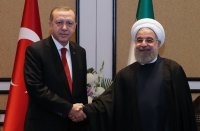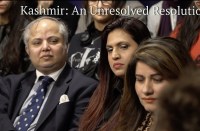Donald Trump is scandalised by his domestic opponents as an ‘enemy of democracy’ and is inversely praised by his support base as a kind of messianic figure out to change the country, aka ‘make America great again’. While many in the US find this language of extreme political dichotomy to be exotic, for those following electoral politics in many developing countries, what is happening in the United States is all too familiar.
Singapore’s founder Lee Kuan Yew transitioned his country from a post-colonial backwater to a developed first world country in a remarkably short period of time. Central to Lee Kuan Yew’s success was his ability to prioritise economic development, social cohesion (aka social peace) and the elevation of educational standards through both investment and carefully designed language laws, against both the forces of dogmatic autocracy (dictatorship) and dogmatic democracy(chaos).
Lee Kuan Yew realised that in a young country that was both multi-cultural, multi-faith and economically undeveloped when he came to power, that the kind of adversarial democracy, complete with the adversarial media seen in a developed wealthy country like the United States, would simply not lead Singapore to what he elegantly called “enlightenment”.
Indeed, Lee Kuan Yew blamed the lack of economic progress in The Philippines on a political system and media atmosphere that inherited all of the hostility and adversarial qualities from the United States, without inheriting any of the wealth and prosperity. Lew Kuan Yew realised that wealth and prosperity had to be striven for in any post colonial environment and that every moment engaged in political, sectarian or sensationalist media bickering was time wasted from productive socio-economic development. Many of the sectarian tensions in 20th and early 21st century South Asia have been due to those very problems that Lee Kuan Yew so studiously avoided in Singapore.
In the 20th century, the United States stood as a militarily strong economic colossus that could afford an adversarial press and hostile political system. This was because high living standards have the effect of moderating the scope of political anger among those dissatisfied with a current government, while America’s multi-cultural model of the melting pot meant that hundreds of immigrant cultures had little choice but to assimilate into a new US-American culture.
Today’s American reality is very different. The country is losing its economic might to the great powers of Asia, while its military supremacy is being challenged throughout the world. Likewise, America’s cultural melting pot has turned into a society where certain cultures have remained autonomous in character while still being subjected to the same universal laws. This phenomenon of the US evolution from a melting pot to a more traditionally multi-cultural society has had mixed results due to the fact that laws designed to function in either a near homogeneous or melting pot environment, have not yet been sufficiently adjusted to cope with the modern trends of communally autonomous multi-cultural sects within society. Inversely, nor have any attempts been made to turn autonomous cultural communities within the US into integrated parts of society in a way that is cooperative rather than hostile or racist. Such a balance is never easy and again, Singapore provides for such a balanced model.
Into the fray of a declining United States stepped Donald Trump. Unlike his 21st century predecessors, Donald Trump did not ignore the economic decline, military decline and new multi-cultural realities of the post-hegemonic United States. Instead, Trump identified the problems, albeit at times in the most vulgar manner possible. In this sense, Trump is to be commended vis-a-vis both Barack Obama and George W. Bush who acted as though nothing had changed since the middle of the 20th century, when indeed a great deal had changed.
On the other hand, far from presenting a Lew Kuan Yew style solution, Trump acts like a politician who would fit perfectly into rowdy and dysfunctional democracies like that of present day India, 1990s Pakistan or contemporary Nigeria. In such systems, democracy is less a battle over managerial style as it is in wealthy, stable countries like the mid-20th century United Sates, but is instead a wholesale battle over personal business interests, sectarian agendas and one’s support among various parts of the non-elected government including the military, intelligence agencies and the courts.
Indeed, anyone following election cycles in multi-party democracies in developing nations of Asia and Africa knows all too well that each candidate his certain business in his pocket, certain elements of the non-elected ‘deep state’ in his pocket and certain media organisations in his pocket. Such organisations go all out for their candidate as though he was a national saviour, in spite of how corrupt he might be. At the same time, the businesses, media outlets and elements of the deep state in opposition say that such a candidate is a threat to democracy…while ironically advocating for an equal and opposite candidate. Of course, such political systems necessarily produce more violence than a system like Singapore. The arrival of political violence to Trump’s United States is symptomatic less of Trump as a person than of the realities of a United States with the characteristics of a developing nation.
Donald Trump’s country thrust this style of developing nation democracy upon him and unlike his opponent who expected a more consensus driven election, Trump was ready. Trump courted elements of the military and police early on, knowing that the CIA, diplomatic corps and certain federal courts would be his nemesis in terms of the un-elected ‘deep state’.
Since taking office, Trump has taken the side of some big media organisations (Fox News, Sinclair) while rallied against others, calling them fake news (CNN, MSNBC, New York Times etc). This is more than an ideological war, it is a war between fellow businessmen and their allies. Meanwhile, Trump is engaged in the kind of nepotism that while uncommon in stable countries like China or Singapore, but is highly common in the attempts at democracy in developing nations. All the while, Trump has surrounded himself with a combination of military men, family members and those who he openly claims to have a good relationship with, while his opposition claims, quite accurately that the intelligence services, State Department and former political dynasties (Bush and Clinton) are on their side rather than Trump’s.
By going after Amazon’s corporate oligarch Jeff Bezos who also owns the opposition Washington Post, Trump is proving just how much US politics has descended to that which is common in post-colonial developing states.
In this sense, there is no chicken and egg argument. America’s decline from rich developed country, to a crumbling 1st world nation with a developing nation’s characteristics is not a symptom of Trump - it is the cause of Trump’s ability to succeed. Donald Trump won an election because the United States at long last was ready for a politician able to compete in the cut-throat world of democracy in developing nations. What shocks people is that such a country is more like The Philippines or Pakistan of the 1990s than like the China of today, the Singapore of the late 20th century or the United States of the mid 20th century. Many Americans have not yet adjusted themselves to the fact that when consensus does not shape one’s national democracy, violence, sectarianism, competing businesses interests and nepotism shape the democracy.
It is only when the US can admit to itself that it is now the world’s wealthiest developing nation, that it might be able to look for a leader who knows what to do with a developing nation. While leaders such as Lee Kuan Yew, Rodrigo Duterte and Deng Xiaoping were able to turn developing countries into countries on their way to prosperity, Trump and his opponents seem stuck in the trap of many politicians in the developing world who are ready to fight for their clan, their ego and the business interests of their friends, but not the nation as a whole. In this sense, America is seeing its once cherished 1st world status be eroded without anyone stepping in to reverse the trend.
If Donald Trump never entered politics, the US would have invented such a character to suit the rapidly changing socio-economic and political realities of the country. For Americans who do not like Trump, do not search for a Hillary Clinton or Bernie Sanders as the solution - search for a Lee Kuan Yew.



